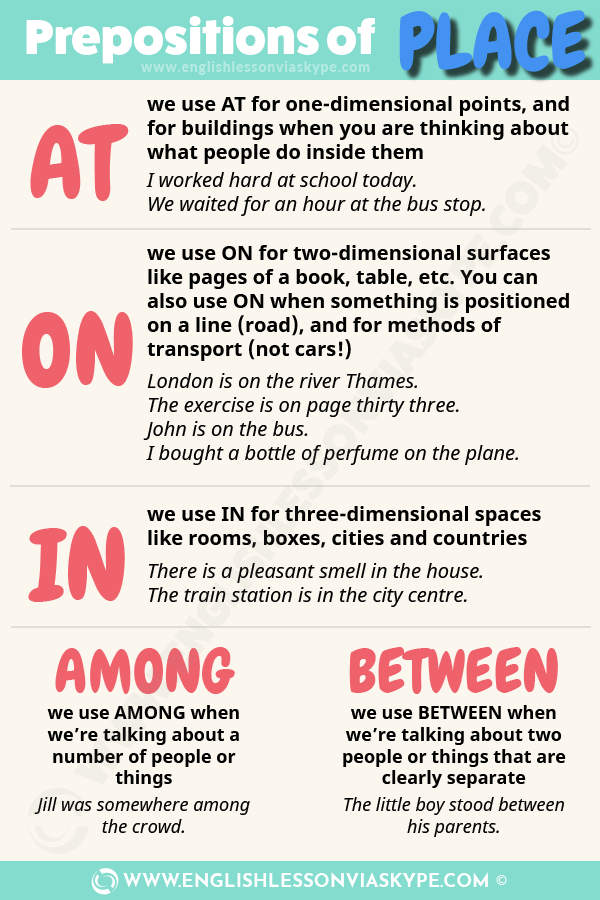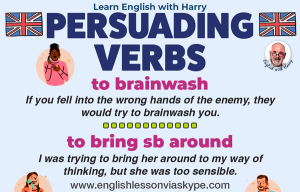Here you will learn how to use prepositions IN ON AT correctly in English.
Complicated English grammar rules explained in simple English.
How to use prepositions In on at - podcast episode 144
Table of Contents
Harry
How to use prepositions IN ON AT

Share! Help other students to improve English skills.
Hi there, this is Harry and welcome back to a podcast where we try to help you with your understanding of the English language help you to be able to understand what you see what you hear what you write, and also how you speak it with other people.
Today, we’re going to look at prepositions and this comes at the request of one of our listeners who would like me to explain in a bit more detail how to use prepositions IN ON AT correctly as she finds them a little bit confusing.
Intermediate to Advanced English Marathon

INSANITY: doing the same thing over and over again and expecting different results.
Albert Einstein
- What you'll learn:
- better understanding of more complex grammar structures
- advanced English vocabulary words
- British & American slang
- perfect your listening skills through practing different accents
- This marathon is for you if you're:
- stuck at an intermediate English level
- tired of confusing explanations
- a mature student
- shy & introverted
Prepositions IN ON AT are probably three of the most frequently used prepositions, and when we use them, often we use them when we’re referring to time. So let me give you a few examples.
We use IN
We use IN when we’re talking about long periods of time, for example, weeks, months, years, centuries.
I was born in July.
I was born in 1956.
I was born in the 20th century.
So they’re all longer periods of time.
And for each of them, we are using the preposition IN.
I will see you in a week’s time.
I will see you in a month’s time.
We can also USE IN
when we’re talking about a particular part of the day.
What are you doing in the afternoon?
What will you be doing in the morning?
How to use prepositions IN ON AT
We use ON
We use ON when we’re talking about shorter periods of time, for example, a day.
I was born on the fifth of July.
When we’re talking about days of the week:
- on Monday
- on Tuesday
- on Wednesday
- on Thursday
whatever day of the week, we always use the preposition ON.
We also USE ON
when we’re talking about the specific dates:
- on the fifth of July
- on the first of May
- on the 24th of December
We usually meet up with friends on the 24th of December.
On the first of May, I’m going to Scotland.
We also USE ON when we’re talking about a particular day:
- on Christmas Day
- on Easter Sunday
on New Year’s Day
I don’t have to go to work on New Year’s Day.
How to use prepositions IN ON AT

Share! Help other students to improve English skills.
We use AT
We use AT when we refer to the general period of Christmas or Easter:
- at Christmas
- at Easter
Some people get presents and Easter cards from their friends at Easter.
We also USE AT
- at noon/midnight/night
- at lunch/breakfast/dinner (time)
- at that time
- at the moment
- at the weekend (American English: on the weekend)
I have no questions at the moment.
I was in the college at that time.
I’m very grateful to the listener who requested to explain how to use prepositions IN ON AT correctly in English. I’m really happy to help you.
Thanks for listening. Join me again soon.

More information
For more information on English grammar rules, English collocations and English idioms, check out the links below:
9 Phrasal verbs about POLITICS
You will love these English lessons

Advanced English Verbs For Persuading
Learn advanced English verbs for persuading. This English lesson is useful for students studying for IELTS, TOEFL, CAE, and other


Ways To Say Bad In English
Learn different ways to say bad in English. In particular, you’ll learn different ways to describe bad service in English.


10 Better Ways to Apologise in English
Don’t say sorry. Learn 10 better ways to apologise in English. This is Harry and welcome back to my English